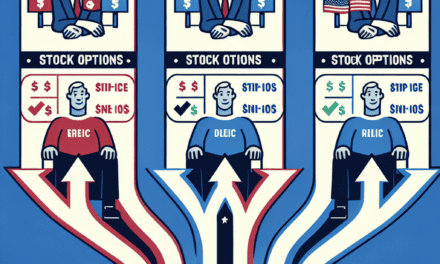“Seeking Justice: Huawei’s Pursuit to Clear Its Name in the US”
Introduction
In a significant legal development, Huawei Technologies, the Chinese multinational technology corporation, has formally requested the dismissal of criminal charges levied against it by the United States government. The charges, which include allegations of bank fraud, wire fraud, and violations of sanctions against Iran, have been a focal point of escalating tensions between the U.S. and China. Huawei’s legal team argues that the charges are unfounded and politically motivated, asserting that the company has been unfairly targeted as part of a broader geopolitical struggle. This move comes amid ongoing debates over national security concerns and the global technology supply chain, with Huawei at the center of discussions regarding 5G infrastructure and cybersecurity. The outcome of this legal battle could have far-reaching implications for international trade relations and the future of global technology governance.
Legal Implications of Huawei’s Request for Dismissal of US Charges
In a significant development within the realm of international business and law, Huawei Technologies has formally requested the dismissal of criminal charges levied against it by the United States government. This move marks a pivotal moment in the ongoing legal battle between the Chinese telecommunications giant and the U.S., which has accused Huawei of various offenses, including bank fraud, wire fraud, and violations of sanctions against Iran. The request for dismissal is not merely a legal maneuver but also a strategic effort to mitigate the broader implications these charges have on Huawei’s global operations and reputation.
The charges against Huawei, which were first brought to light in 2019, have been a source of tension between the U.S. and China, exacerbating an already strained relationship. Huawei’s legal team argues that the charges are unfounded and politically motivated, asserting that the U.S. government has failed to provide sufficient evidence to substantiate its claims. By seeking dismissal, Huawei aims to challenge the legal basis of the accusations, thereby attempting to clear its name and restore its standing in the international market.
From a legal perspective, the request for dismissal hinges on several key arguments. Huawei contends that the U.S. has overstepped its jurisdictional boundaries, particularly in its application of American laws to a foreign company operating primarily outside the United States. Furthermore, Huawei’s defense highlights procedural issues, such as alleged violations of due process and the potential misuse of legal instruments like extradition requests. These arguments are designed to question the legitimacy of the charges and the methods employed by U.S. authorities in pursuing them.
The implications of Huawei’s request extend beyond the courtroom, influencing geopolitical dynamics and international trade relations. Should the charges be dismissed, it could signal a de-escalation of tensions between the U.S. and China, potentially paving the way for improved diplomatic and economic interactions. Conversely, if the request is denied, it may reinforce existing hostilities and further complicate negotiations on various bilateral issues. The outcome of this legal battle is likely to have a ripple effect, impacting not only Huawei’s business operations but also the broader landscape of global technology competition.
Moreover, the case underscores the complex interplay between law and technology in the modern era. As a leading provider of telecommunications equipment and services, Huawei is at the forefront of the global race for technological supremacy, particularly in the development and deployment of 5G networks. The legal challenges it faces in the U.S. are emblematic of the broader struggle for dominance in the tech sector, where legal and regulatory frameworks are increasingly being used as tools of competition.
In conclusion, Huawei Technologies’ request for the dismissal of U.S. criminal charges is a critical juncture in its ongoing legal saga. The outcome of this request will have far-reaching consequences, not only for Huawei but also for international legal norms and the future of global technology competition. As the case unfolds, it will be closely watched by legal experts, policymakers, and industry leaders alike, all of whom have a vested interest in the resolution of this high-stakes legal confrontation. The decision will ultimately shape the narrative of Huawei’s role in the global market and its relationship with the United States, setting a precedent for how similar cases may be handled in the future.
Impact on US-China Relations from Huawei’s Legal Maneuver
Huawei Technologies, a leading global provider of information and communications technology infrastructure, has recently made headlines by requesting the dismissal of criminal charges levied against it by the United States. This legal maneuver is not just a significant development for the company itself but also holds broader implications for the already complex and strained US-China relations. As Huawei seeks to clear its name, the move could potentially alter the dynamics between the two economic superpowers, which have been embroiled in a trade war and technological rivalry for years.
The charges against Huawei, which include allegations of bank fraud, wire fraud, and violations of sanctions against Iran, have been a point of contention between the US and China. The US government has long argued that Huawei poses a national security threat, claiming that its equipment could be used for espionage by the Chinese government. Huawei, on the other hand, has consistently denied these allegations, asserting that it operates independently of the Chinese state. By requesting the dismissal of these charges, Huawei aims to not only protect its business interests but also challenge the narrative that it is a pawn of the Chinese government.
This legal action comes at a time when US-China relations are already fraught with tension. The trade war initiated by the Trump administration, which saw tariffs imposed on billions of dollars’ worth of goods, has yet to be fully resolved. Moreover, the Biden administration has continued to view China as a strategic competitor, maintaining a firm stance on issues such as human rights and territorial disputes. In this context, Huawei’s legal maneuver could be seen as an attempt to de-escalate tensions by addressing one of the many contentious issues between the two nations.
However, the impact of Huawei’s request on US-China relations is not straightforward. On one hand, if the charges are dismissed, it could pave the way for improved relations by removing a significant irritant. It might also encourage other Chinese companies facing similar scrutiny to seek legal recourse, potentially leading to a more level playing field in international trade. On the other hand, the US government may perceive Huawei’s actions as a challenge to its authority, potentially leading to a hardening of its stance on Chinese technology firms.
Furthermore, the outcome of this legal battle could influence the global perception of both Huawei and the broader US-China relationship. If Huawei succeeds in having the charges dismissed, it could bolster its reputation as a legitimate global player, free from undue political influence. Conversely, if the US courts uphold the charges, it could reinforce the narrative of Huawei as a national security threat, further complicating its efforts to expand in Western markets.
In conclusion, Huawei’s request for the dismissal of US criminal charges is a pivotal moment that could have far-reaching implications for US-China relations. While it presents an opportunity for de-escalation and potential reconciliation, it also carries the risk of exacerbating tensions if not handled delicately. As the legal proceedings unfold, the world will be watching closely to see how this development influences the intricate web of economic, political, and technological interactions between the United States and China.
Analyzing the US Legal System’s Response to Huawei’s Dismissal Request
In a significant development within the ongoing legal saga between Huawei Technologies and the United States government, the Chinese telecommunications giant has formally requested the dismissal of criminal charges levied against it. This move marks a pivotal moment in the protracted legal battle, which has seen Huawei at the center of geopolitical tensions and trade disputes between the two nations. To understand the implications of Huawei’s request, it is essential to analyze the US legal system’s response and the broader context in which this case unfolds.
The charges against Huawei, which include allegations of bank fraud, wire fraud, and violations of the International Emergency Economic Powers Act, have been a focal point of US-China relations. These charges are part of a broader strategy by the US to curtail Huawei’s influence in global telecommunications, citing national security concerns. The US government has argued that Huawei’s close ties to the Chinese government pose a risk to the integrity of global communications networks. Consequently, the legal proceedings against Huawei have been closely watched by international observers, as they carry significant implications for global trade and technology sectors.
In response to Huawei’s request for dismissal, the US legal system must carefully consider the merits of the case. The defense argues that the charges are politically motivated and lack substantial evidence, asserting that the US government has overstepped its bounds in targeting a foreign corporation. This argument hinges on the notion that the legal actions against Huawei are part of a broader geopolitical strategy rather than a pursuit of justice based on concrete legal violations. As such, the court’s decision on whether to dismiss the charges will likely hinge on the ability of the prosecution to demonstrate that the case is grounded in legitimate legal concerns rather than political maneuvering.
The US legal system, known for its adherence to due process and the rule of law, faces a complex challenge in adjudicating this case. On one hand, it must uphold its commitment to impartiality and fairness, ensuring that Huawei receives a fair trial. On the other hand, it must also consider the broader national security implications that the US government has raised. This delicate balance between legal principles and national interests is a recurring theme in cases involving foreign entities accused of threatening US security.
Moreover, the outcome of Huawei’s dismissal request could set a precedent for how similar cases are handled in the future. If the court decides to dismiss the charges, it may embolden other foreign companies facing similar accusations to challenge the US legal system. Conversely, if the court upholds the charges, it could reinforce the US government’s stance on protecting national security through legal means. In either scenario, the decision will likely reverberate beyond the courtroom, influencing international perceptions of the US legal system’s approach to foreign corporations.
In conclusion, Huawei Technologies’ request for the dismissal of US criminal charges presents a multifaceted challenge for the US legal system. As the court deliberates on this high-profile case, it must navigate the intricate interplay between legal principles, national security concerns, and international relations. The outcome will not only impact Huawei’s future but also shape the broader narrative of how the US addresses legal disputes involving foreign entities in an increasingly interconnected world.
Huawei’s Legal Strategy: A Closer Look at the Dismissal Request
In a significant development within the ongoing legal saga involving Huawei Technologies, the Chinese telecommunications giant has formally requested the dismissal of criminal charges levied against it by the United States government. This move marks a pivotal moment in Huawei’s legal strategy, as the company seeks to extricate itself from a complex web of allegations that have strained US-China relations and impacted its global business operations. To understand the implications of this request, it is essential to examine the charges, Huawei’s legal arguments, and the broader geopolitical context.
The charges against Huawei, filed by the US Department of Justice, include allegations of bank fraud, wire fraud, and violations of the International Emergency Economic Powers Act. These charges are primarily centered around accusations that Huawei misled global financial institutions about its business dealings in Iran, thereby violating US sanctions. Additionally, the company faces charges related to the alleged theft of trade secrets from American companies. These allegations have not only led to legal challenges but have also fueled a broader narrative of Huawei as a potential security threat, a claim the company has consistently denied.
In its request for dismissal, Huawei’s legal team has put forth several arguments aimed at undermining the foundation of the US government’s case. One of the central arguments is that the charges are politically motivated, a claim that resonates with the broader geopolitical tensions between the United States and China. Huawei contends that the legal actions are part of a concerted effort by the US to stifle competition in the global telecommunications market, particularly in the race to dominate 5G technology. By framing the charges as politically charged, Huawei aims to cast doubt on the impartiality of the legal proceedings.
Moreover, Huawei’s legal strategy also involves challenging the evidence presented by the US government. The company argues that the evidence is insufficient to support the serious allegations made against it. This includes questioning the credibility of witnesses and the interpretation of documents that the prosecution has relied upon. By scrutinizing the evidence, Huawei seeks to weaken the prosecution’s case and bolster its position that the charges are unfounded.
The request for dismissal also highlights the broader implications of the case for international business and trade. Huawei’s legal battle is not just a matter of corporate interest; it is emblematic of the challenges faced by multinational companies operating in an increasingly polarized global environment. The outcome of this case could set a precedent for how similar cases are handled in the future, particularly those involving allegations of sanctions violations and intellectual property theft.
As the legal proceedings unfold, the world will be watching closely to see how the US judicial system navigates the complex interplay of law, politics, and international relations. The decision on whether to dismiss the charges will have far-reaching consequences, not only for Huawei but also for the broader landscape of US-China relations. It remains to be seen how the court will respond to Huawei’s arguments and whether this request for dismissal will mark a turning point in the company’s legal and strategic efforts to clear its name and restore its standing in the global market.
Potential Outcomes of Huawei’s Dismissal Request on Global Tech Markets
Huawei Technologies’ recent request for the dismissal of U.S. criminal charges has sparked significant interest and speculation regarding its potential impact on global tech markets. As one of the world’s leading telecommunications equipment and consumer electronics manufacturers, Huawei’s legal battles have far-reaching implications. The outcome of this request could influence not only the company’s future but also the broader dynamics of international trade and technology development.
To understand the potential outcomes, it is essential to consider the context of the charges. The U.S. government has accused Huawei of various offenses, including bank fraud, wire fraud, and violations of sanctions against Iran. These charges have led to heightened tensions between the U.S. and China, with Huawei often caught in the crossfire. If the dismissal request is granted, it could ease some of these tensions, potentially leading to a more stable environment for international trade. This stability might encourage other countries to reassess their positions on Huawei, possibly leading to a relaxation of restrictions and a more open market for its products.
Moreover, a favorable outcome for Huawei could bolster its position in the global tech market. The company has been a pioneer in 5G technology, and its ability to compete without the burden of legal challenges could accelerate the deployment of its infrastructure worldwide. This could have a ripple effect, prompting competitors to innovate more rapidly to maintain their market share. Consequently, consumers might benefit from faster advancements in technology and more competitive pricing.
On the other hand, if the dismissal request is denied, Huawei may face continued legal and financial challenges. This could lead to a more fragmented global tech market, as countries and companies might be forced to choose sides in the ongoing U.S.-China tech rivalry. Such a scenario could slow down technological progress, as collaboration and standardization efforts might be hindered by geopolitical considerations. Additionally, smaller tech companies that rely on Huawei’s technology could experience disruptions, affecting their operations and innovation capabilities.
Furthermore, the decision on Huawei’s request could set a precedent for how similar cases are handled in the future. If the charges are dismissed, it might encourage other companies facing legal challenges in foreign jurisdictions to pursue similar strategies. This could lead to a reevaluation of international legal frameworks governing corporate conduct and cross-border trade. Conversely, if the request is denied, it might reinforce the current approach, potentially leading to stricter enforcement of trade regulations and increased scrutiny of multinational corporations.
In conclusion, Huawei Technologies’ request for the dismissal of U.S. criminal charges carries significant implications for the global tech markets. Whether the request is granted or denied, the outcome will likely influence international trade dynamics, technological innovation, and legal precedents. As stakeholders across the globe await the decision, the situation underscores the complex interplay between technology, law, and geopolitics in today’s interconnected world. The resolution of this case will not only shape Huawei’s future but also provide valuable insights into the evolving landscape of global technology markets.
Historical Context: US Legal Actions Against Huawei and Their Outcomes
In recent years, Huawei Technologies has found itself at the center of a complex legal and geopolitical saga, marked by a series of actions taken by the United States government. The latest development in this ongoing narrative is Huawei’s request for the dismissal of criminal charges levied against it by the U.S. authorities. To fully understand the implications of this request, it is essential to examine the historical context of U.S. legal actions against Huawei and their outcomes.
The legal challenges faced by Huawei in the United States can be traced back to concerns over national security and allegations of intellectual property theft. These issues have been compounded by the broader context of U.S.-China relations, which have been characterized by increasing tension and competition. In 2018, the U.S. Department of Justice (DOJ) filed charges against Huawei, accusing the company of bank fraud, wire fraud, and conspiracy to defraud the United States. These charges were primarily related to allegations that Huawei had violated U.S. sanctions against Iran by conducting business through a subsidiary, Skycom Tech Co. Ltd.
The legal battle intensified in 2019 when the DOJ added more charges, including allegations of trade secret theft. These charges were part of a broader strategy by the U.S. government to curtail Huawei’s influence and limit its access to American technology. The U.S. government has consistently argued that Huawei poses a significant security risk, given its alleged ties to the Chinese government and military. Consequently, the U.S. has taken steps to restrict Huawei’s operations, including placing the company on the Entity List, which effectively bans it from acquiring technology from U.S. firms without government approval.
Despite these challenges, Huawei has maintained its innocence, arguing that the charges are politically motivated and lack substantive evidence. The company has consistently denied any wrongdoing, asserting that it operates independently of the Chinese government and adheres to international laws and standards. In response to the legal actions, Huawei has engaged in a robust legal defense, seeking to challenge the charges in court and mitigate the impact on its global operations.
The request for dismissal of the criminal charges represents a significant moment in this ongoing legal saga. Huawei’s legal team has argued that the charges are based on flawed legal theories and insufficient evidence. They contend that the U.S. government’s actions are part of a broader campaign to undermine Huawei’s competitive position in the global technology market. This request for dismissal is not merely a legal maneuver but also a strategic effort to reshape the narrative surrounding Huawei and its role in the global technology landscape.
As the legal proceedings continue, the outcomes of these actions will have far-reaching implications for Huawei and the broader technology industry. The case highlights the intersection of law, technology, and geopolitics, illustrating how legal actions can be influenced by broader strategic considerations. The resolution of these charges will not only impact Huawei’s operations but also set precedents for how similar cases may be handled in the future.
In conclusion, the historical context of U.S. legal actions against Huawei is a complex tapestry of legal, political, and economic factors. The request for dismissal of criminal charges is a pivotal moment in this ongoing narrative, reflecting the broader challenges and opportunities faced by Huawei as it navigates the intricate landscape of international law and global competition. As the case unfolds, it will continue to be a focal point in the discourse on technology, security, and international relations.
The Role of International Law in Huawei’s US Criminal Charges Dismissal Request
In a significant development within the realm of international business and law, Huawei Technologies has formally requested the dismissal of criminal charges levied against it by the United States. This move underscores the intricate interplay between international law and national legal systems, highlighting the complexities that arise when multinational corporations become entangled in legal disputes across borders. The charges, which include allegations of bank fraud, wire fraud, and violations of sanctions against Iran, have been a focal point of tension between the U.S. and China, with Huawei positioned at the center of this geopolitical chess game.
To understand the basis of Huawei’s dismissal request, it is essential to consider the role of international law in such cases. International law, while not always directly applicable in domestic courts, provides a framework for understanding how states interact and resolve disputes. In this context, Huawei’s legal team may argue that the charges are politically motivated, a claim that could be supported by principles of international law that discourage the use of legal systems for political ends. Furthermore, the principle of comity, which encourages mutual respect between different legal systems, may be invoked to argue that the U.S. should defer to Chinese legal proceedings or international arbitration mechanisms.
Moreover, Huawei’s request for dismissal may also hinge on the interpretation of international treaties and agreements. For instance, the World Trade Organization (WTO) agreements, to which both the U.S. and China are signatories, emphasize fair competition and non-discriminatory practices. Huawei could argue that the charges against it violate these principles by unfairly targeting a Chinese company in a manner that disrupts international trade norms. Additionally, the United Nations Convention against Corruption, which promotes international cooperation in combating corruption, might be referenced to highlight the need for transparent and unbiased legal proceedings.
Transitioning to the potential implications of Huawei’s request, it is crucial to consider the broader impact on international relations and global business practices. Should the charges be dismissed, it could set a precedent for how similar cases are handled in the future, potentially leading to increased scrutiny of the motivations behind legal actions against foreign companies. This could, in turn, influence how multinational corporations navigate the legal landscapes of countries where they operate, prompting them to adopt more robust compliance measures to mitigate the risk of legal entanglements.
Conversely, if the dismissal request is denied, it may exacerbate existing tensions between the U.S. and China, further complicating diplomatic efforts to resolve trade disputes and other geopolitical issues. This outcome could also prompt other countries to reevaluate their legal strategies when dealing with foreign corporations, potentially leading to a more fragmented and protectionist global business environment.
In conclusion, Huawei’s request for the dismissal of U.S. criminal charges is a complex legal maneuver that underscores the significant role of international law in cross-border legal disputes. As this case unfolds, it will undoubtedly serve as a critical reference point for future discussions on the intersection of international law, national legal systems, and global business practices. The outcome will not only affect Huawei’s operations but also shape the broader landscape of international corporate governance and diplomacy.
Q&A
1. **What are the charges against Huawei Technologies?**
Huawei Technologies faced charges related to bank fraud, wire fraud, and conspiracy to defraud the United States, primarily concerning alleged violations of U.S. sanctions against Iran.
2. **Why did Huawei request the dismissal of these charges?**
Huawei requested the dismissal of the charges on the grounds that the U.S. government had not provided sufficient evidence to support the allegations and that the charges were politically motivated.
3. **What is the significance of the Meng Wanzhou case in this context?**
Meng Wanzhou, Huawei’s CFO, was arrested in Canada at the request of the U.S. on charges related to the same allegations. Her case became a focal point in the legal battle and diplomatic tensions between the U.S., China, and Canada.
4. **How has the U.S. government responded to Huawei’s request for dismissal?**
The U.S. government has maintained that the charges are valid and based on substantial evidence, arguing that Huawei’s actions posed a threat to national security and violated U.S. laws.
5. **What impact has this legal battle had on U.S.-China relations?**
The legal battle has exacerbated tensions between the U.S. and China, contributing to a broader trade and technology conflict between the two nations.
6. **What are the potential consequences for Huawei if the charges are not dismissed?**
If the charges are not dismissed, Huawei could face significant financial penalties, restrictions on its operations in the U.S., and further damage to its global reputation.
7. **Has there been any resolution or settlement in the case?**
As of the latest updates, there has been no final resolution or settlement in the case, and legal proceedings are ongoing.
Conclusion
Huawei Technologies has requested the dismissal of U.S. criminal charges, arguing that the charges are politically motivated and lack sufficient legal basis. The company contends that the allegations, which include bank fraud, wire fraud, and violations of sanctions against Iran, are part of a broader geopolitical conflict between the U.S. and China. Huawei asserts that the charges are an attempt to undermine its competitive position in the global technology market. The outcome of this legal maneuver will have significant implications for U.S.-China relations, the global tech industry, and the legal landscape concerning multinational corporations and international trade compliance.





